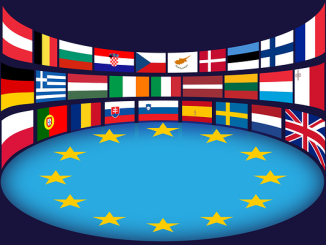
Universal Basic Income or UBI is a system of income distribution in which the government gives all its citizens the same fixed amount of money on a monthly basis, regardless if they are working or not, or whatever their level of income is. Due to the impending threat of mass unemployment resulting from widespread automation, the feasibility of UBI as a solution has steadily been gaining popularity, particularly from notable personalities whose opinions and views are held in high esteem.
Among the known advocates of UBI is Tesla (NASDAQ:TSLA) boss and SpaceX CEO Elon Musk, who just recently reiterated his support for UBI, stating during the recent World Government Summit that it is ‘going to be necessary‘. He even went as far as saying that the impact of unemployment goes beyond simply the financial aspect — that it might affect a person’s ‘purpose’ in life, especially those who derive meaning from their work.
Billionaire and philanthropist Bill Gates, on the other hand, doesn’t seem to share the same sense of urgency that Musk feels. While he doesn’t exactly reject the idea of UBI as a possible solution for the looming labor force displacement crisis, he just doesn’t believe that the world is ready for such a behemoth plan. At least not at this time.
Msoft’s (NASDAQ:MSFT) founder made his sentiments known during his fifth Ask Me Anything (AMA) session on Reddit. When asked about what he thought of UBI, he answered: “Over time countries will be rich enough to do this. However we still have a lot of work that should be done – helping older people, helping kids with special needs, having more adults helping in education. Even the US isn’t rich enough to allow people not to work. Some day we will be but until then things like the Earned Income Tax Credit will help increase the demand for labor.”
Earned Income Tax Credit or EITC is a form of ‘negative income tax’ that applies to low-income families. At the end of tax season, rather than being made to pay income tax, the government gives them a certain amount of money instead which is meant to help them stay above poverty level.
Unlike UBI advocates, Gates believes that even if automation forces people into unemployment, technology is bound to make nations richer. And this wealth will be put to better use by training people who get displaced by automation, instead of giving it away as fixed income. Besides, there’s not one country right now who can say for certain that they can afford to launch a nationwide UBI system.
Gates also brought up the ‘classic thing of teaching someone how to fish’. Which is basically saying that it is preferable to teach people how to fend for themselves rather than simply give them what they need.
Because he is known for being a philanthropist, we’re pretty sure Bill Gates not supporting UBI at this time is not something we can take against him. In a way, his views seem a bit more optimistic. That instead of giving up when one’s job gets taken over by a robot, a person should rise above it – get trained and become skilled at something else. Even if that may be oversimplifying, especially if we are to believe the prospect that in time, there’ll be fewer jobs that humans can do better than robots.
In any case, UBI is being seriously considered by a few countries right now, with Finland leading the way as it has already started implementing its UBI program. India and Canada might soon follow.
Maybe Bill Gates believes the world is not yet ready for UBI. And maybe the world may never be ready for UBI. But until it is actually implemented and tested, we won’t really know. And so for now, we look to Finland for some answers. If their UBI program goes well for them, then that will be something concrete to go forward from.
- Bulenox: Get 45% to 91% OFF ... Use Discount Code: UNO
- Risk Our Money Not Yours | Get 50% to 90% OFF ... Use Discount Code: MMBVBKSM
Disclaimer: This page contains affiliate links. If you choose to make a purchase after clicking a link, we may receive a commission at no additional cost to you. Thank you for your support!




Leave a Reply